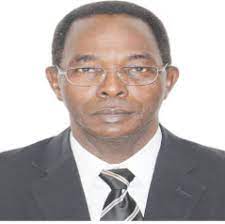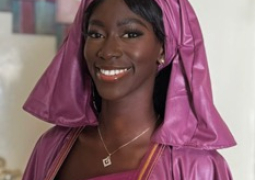
This is a fact. It cannot usher in a new Gambia. It is in the best interest of the Nation to further reflect on its implications for governance, in my opinion. The problem started with the first CRC draft 2020 constitution. It was too elaborate, too elitist and legally biased to some extent. It removed most of the powers of the President perhaps, to avoid dictatorial tendencies in governance as was experienced in the government of the second republic. But the legal drafters then failed to realize that a constitution is both a legal and political document.
Therefore, to have looked at things through legal lenses, was certainly too weak and too fanciful to deserve the attention of the political leadership. This was why it failed to pass at the executive and Legislative levels of government. Since it (CRC draft 2020 constitution) was dead but not buried, it has come up again in another format which, in my opinion, has not been well- conceived. It is now generating public debates and anger in many sections of society. The most contentious clauses in this revised draft are the term limit of the Presidency and the electoral mechanisms. The term limit of the Presidency has been inextricably linked to the term of office of the National Assembly. This gives a signal for self- perpetuating rule which does not augur well with democratic governance. Hence the document did not say when the term limit should begin. Chapter 5 which aims at a clean government has been deleted. This is considered as concealment of transparency and accountability. One wonders why there is such a moral and ethical deficiency in the system of governance. No government is personal to the holder. The fact that we are in the third republic shows that governments come and go and the Nation remains. If men are unable to critically examine the themes of their era, they will be carried along in the wake of change. The new constitution should have reduced the Presidential term limit to 4 years instead of 5 years as it is the case in Nigeria, USA, UK, India and in other countries. In Africa when a government stays too long in power, the people become fed up with its presence especially when the internal contradictions become immeasurable and puts hardships on the people. In the context of the 2024 draft constitution, it must be stated that while it is reasonable to leave certain powers with the President, those powers that lead to authoritarian or dictatorial tendencies must be scrapped to enhance democratic governance. We must remember that we the Gambians had said NEVER AGAIN to the era of dictatorship. But this will only hold water in the context of the consolidation of our democracy. It also depends on the moral conscience of the political leadership and their policy advisers. With this 2024 draft constitution, it is the country’s honor and reputation that is at stake. Let us take that into account. It is in the best interest of the Nation for Gambians to be decided on having a new constitution that is reflective of the wishes and aspirations of the people and that would usher in good governance in a democratic dispensation. The policymakers should be honest and professional enough to advise the executive accordingly for the country to move forward. The President is doing all his best to develop the country in all sectors of the economy. His good legacy should remain intact after his exit from office. The tragic mistake could be if those who see their interests first before the country and push the Presidency towards a direction that will distort all the good work he has done for the country. I believe having won the African Peace Prize, having endured democratic governance, ended dictatorship, developed the country, President Barrow stands to win the MO Ibrahim Award and international respect, protection and honor by Gambians. President Barrow himself was quoted telling a visiting American Delegation to State House that he believes in Term Limit. Should Gambians expect change of heart in this believe. Only time will tell. We pray that the constitutional process ends on national consensus for the common good.



